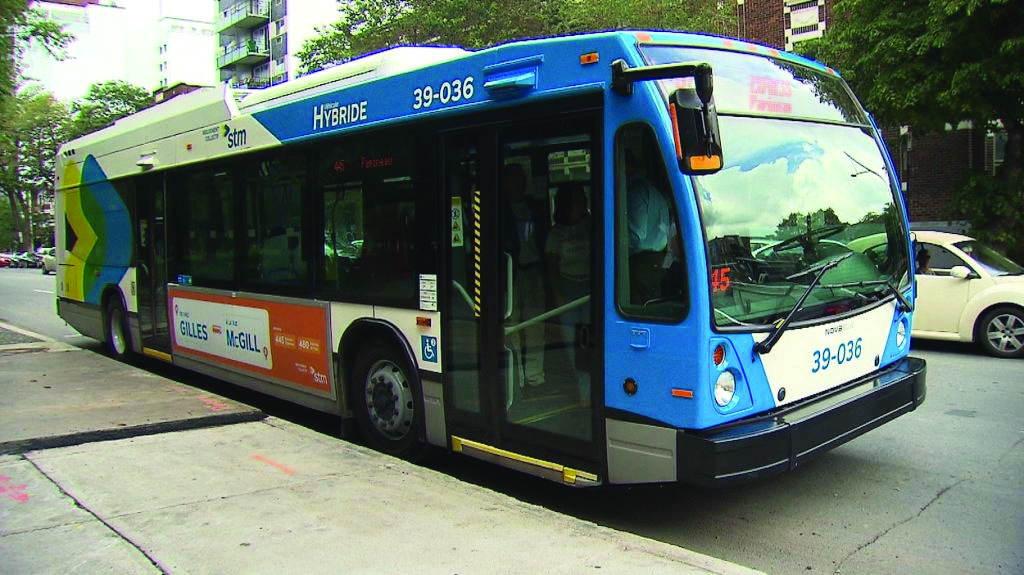Montreal’s bustle is returning after months of rigid COVID-19 restrictions, yet the Société de transport de Montréal (STM) ridership remains remarkably low. As a result, in August, the regional transit board asked the STM to cut $276-million from its budget over the next three years. Recently, the STM proposed cutting $114-million of the funds currently allocated to operations, a decision that would affect the quality and accessibility of services offered to STM riders. Although cost-cutting will be necessary to rebuild the economy post-pandemic, underfunding the STM threatens to leave behind regular commuters. The City of Montreal must reconsider its 2021 budget allocation to respect the communities most reliant on the STM.
The STM is not without its problems, however: Notoriously inefficient, transit routes have gone largely unchanged over the past decade, resulting in accessibility issues for commuters—especially those from Montreal’s North and South Shores, areas primarily inhabited by low-income and racially diverse communities. Some logistical elements of STM services are outdated as well: To renew OPUS cards, for example, riders must go in-person to a metro station or to select pharmacies. This process is unnecessarily complicated when compared against Toronto’s PRESTO card system, which allows riders to manage their accounts entirely online. With adequate funding, the STM could capitalize on technological advances, make services more accessible, and help restore ridership levels—which would mitigate the transit sector’s current financial crisis. The municipality’s decision to target the STM, a service in evident need of revamping, inspires questions about the depth of Montreal’s commitment to equitable and efficient tax dollar spending.
The proposed STM budget cuts also raise ethical questions regarding the city’s environmental goals. Montreal is one of Canada’s greenest cities, but cutting funds for a system so crucial to emission reduction contradicts Projet Montreal’s supposed commitment to sustainable development. Even if the STM decided to keep the $114-million in the budget, that alone would not be able to cover the cost of creating new metro lines or implementing long-term environmental projects. Still, allocating funds to green initiatives while reducing the efficiency and accessibility of transit services is counterintuitive—especially given the budget’s three-year timeline.
As universities and businesses resume in-person activity, those living beyond Montreal’s downtown core will rely more heavily on STM busses and metros. The city’s lack of alternate transportation options means that riders will have to deal with the potential consequences of underfunding, including prolonged wait times or outdated service renewal options. Since high living costs continue to push some racialized communities away from the downtown core, the effects of slower STM operations will be felt disproportionately. The municipal budgetary plan highlights a troubling pattern of Montreal’s municipal public service policies neglecting to adequately serve marginalized communities.
Attention to budget reform has dominated recent political debates. Despite outcry from Montreal locals to defund the police in 2020, the city’s 2021 budget boosts funds to the police. Montreal’s law enforcement and transit systems disproportionately impact marginalized communities, yet the city’s 2021 funding allocation fails to reflect that in their budget. If the city is truly committed to meeting community needs, fiscal policies should support, not hurt, those most impacted by the public service sector.
If Montreal’s budgeting fails to reflect public demand in areas as uncontroversial as transit, the possibility of seeing meaningful structural reform in law enforcement is far-fetched. City officials must be receptive to the needs and voices of vulnerable community members, even in the face of economic pressure. Otherwise, those most affected by the service sector’s shortcomings will be left to suffer the consequences of retrenchment.









